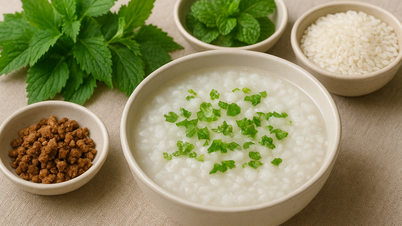
Exercising, eating scientifically , avoiding stress, and getting enough sleep every day help women balance hormones and enhance physiology.
Hormonal imbalance affects the functioning of many organs, increasing the risk of polycystic ovary syndrome, hypothyroidism, hyperthyroidism. Women can control hormones with the following daily habits.
Eat healthy
Prioritize good fats : Monounsaturated fats help regulate hormones. Foods that women should prioritize include olive oil, almonds, nuts, avocados, and peanuts. Consuming these types of fats also helps stabilize blood sugar levels.
Omega-3 polyunsaturated fatty acids also contribute to hormone balance, which is linked to a reduced risk of heart disease. Foods rich in omega-3 polyunsaturated fatty acids include salmon, mackerel, tuna, sardines, flaxseeds, chia seeds, and walnuts.
Balance your protein intake: Adequate protein intake is essential for maintaining and building muscle mass. Muscle tissue plays a role in hormone metabolism, especially insulin sensitivity. More muscle mass generally improves the body's ability to regulate blood sugar and hormones.
Protein has the effect of creating a feeling of fullness, indirectly affecting hormones that regulate hunger and appetite such as ghrelin and leptin.
Watch your sugar intake : High sugar intake leads to spikes in blood sugar, which causes the pancreas to secrete insulin. Over time, this contributes to insulin resistance. Eating less sugar helps maintain more stable blood sugar levels.
A high sugar diet can cause chronic inflammation. Increased inflammation can interfere with hormonal signaling and lead to increased cortisol (stress hormone) levels, sex hormone imbalances, and thyroid and adrenal dysfunction.
Phytoestrogens are compounds found in certain plants (like soy) that are structurally similar to the hormone estrogen. They interact with estrogen receptors in the body, regulating hormones and reducing menopausal symptoms like hot flashes and night sweats.
Stress management
When you are stressed, your body releases hormones like cortisol and adrenaline. Some ways to reduce stress include meditation, yoga, getting enough sleep, breathing exercises...
Get enough sleep
Lack of sleep increases cortisol levels, leading to increased stress responses and weight gain. Insufficient sleep can alter levels of ghrelin and leptin, hormones that regulate appetite, often leading to increased hunger and weight gain.
Exercise regularly
Physical activity improves insulin sensitivity, allowing cells to use glucose efficiently. This helps regulate blood sugar levels and prevents insulin resistance, a condition linked to hormonal imbalances.
Certain types of exercise, especially strength training or high-intensity interval training, stimulate the production of human growth hormone (hGH). This hormone supports muscle growth, metabolism, and overall growth. Moderate exercise reduces cortisol levels, contributing to hormonal balance.
Avoid drinking alcohol
Long-term excessive alcohol consumption disrupts communication between the nervous, endocrine, and immune systems. This disruption leads to hormonal disruption, increased stress response, difficulty conceiving, impaired immune function, and increased cancer risk.
Le Nguyen (According to Very Well Health )
| Readers ask female physiology questions here for doctors to answer |
Source link




![[Photo] Prime Minister Pham Minh Chinh chairs meeting to deploy overcoming consequences of storm No. 10](https://vphoto.vietnam.vn/thumb/1200x675/vietnam/resource/IMAGE/2025/10/3/544f420dcc844463898fcbef46247d16)


![[Photo] Students of Binh Minh Primary School enjoy the full moon festival, receiving the joys of childhood](https://vphoto.vietnam.vn/thumb/1200x675/vietnam/resource/IMAGE/2025/10/3/8cf8abef22fe4471be400a818912cb85)

































































































Comment (0)